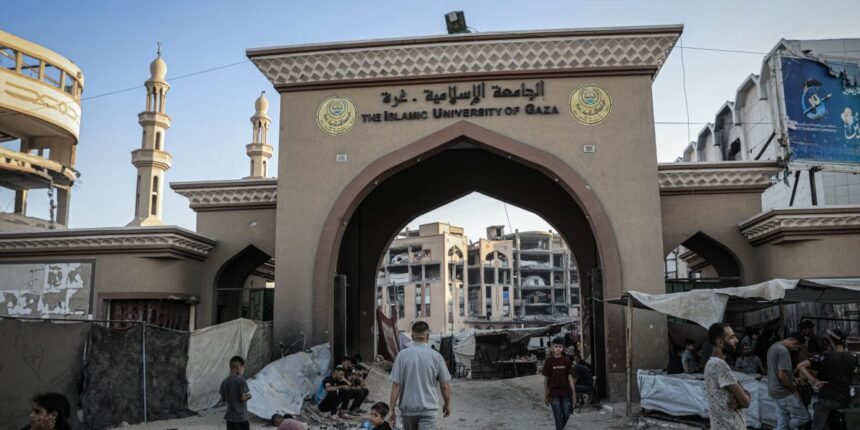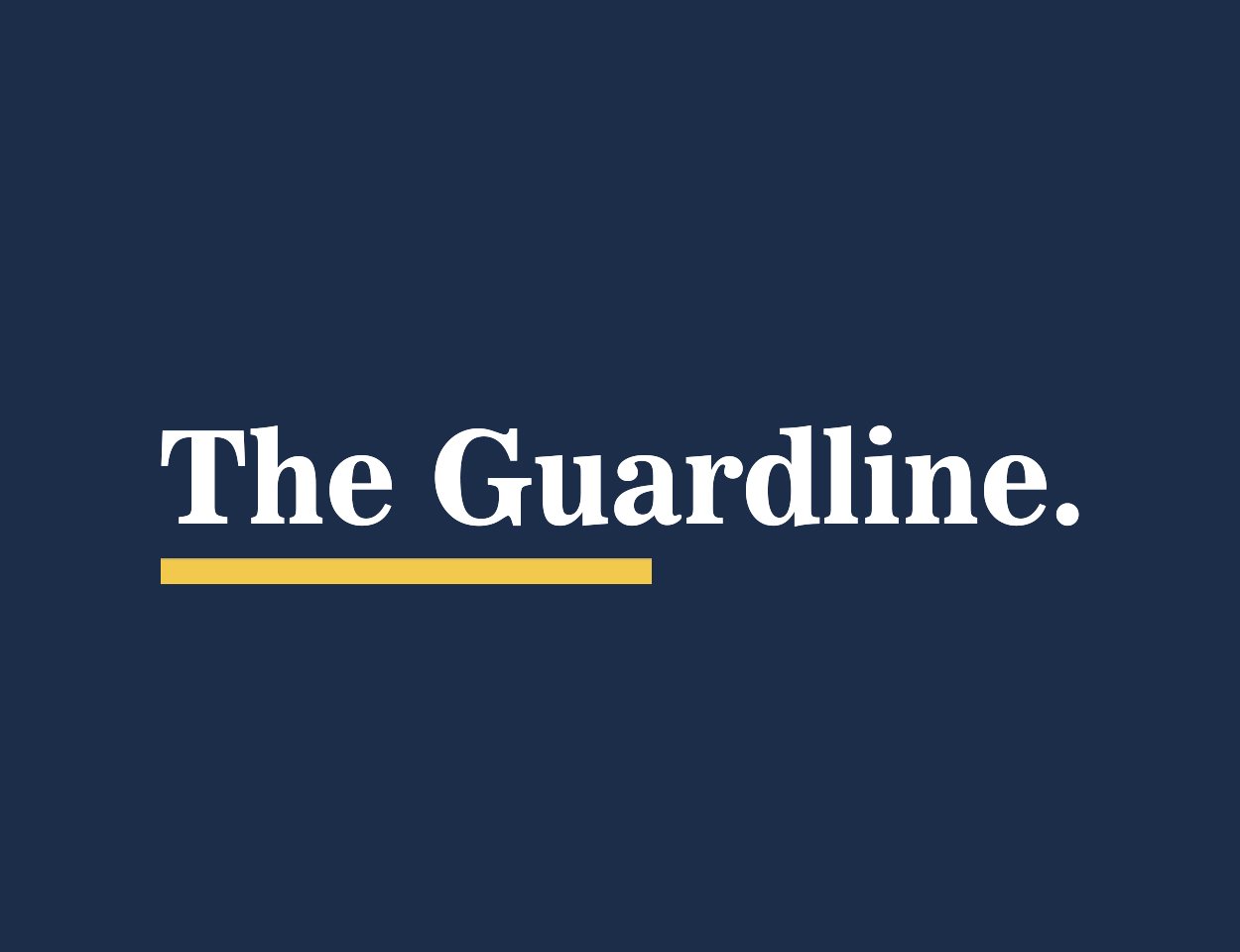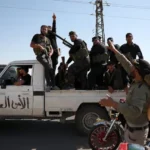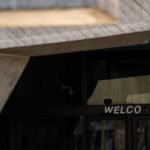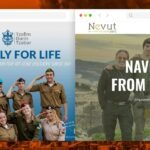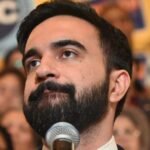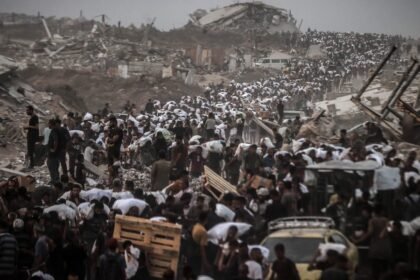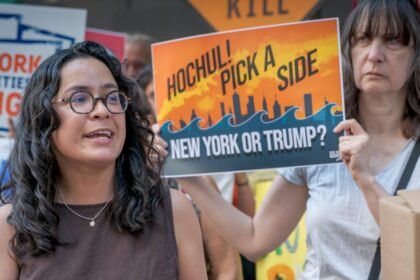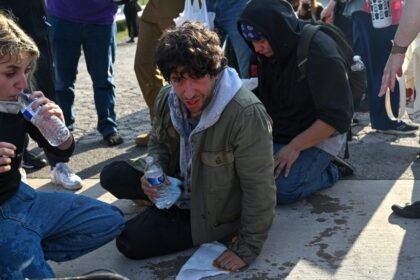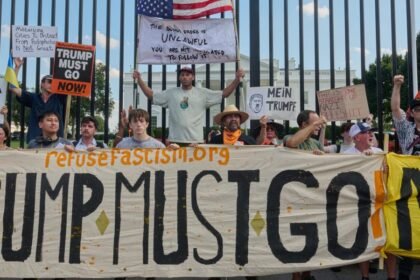The Guardline
Maryam walked for two hours through the streets of Gaza, reciting verses of protection from the Quran. She was hunting for a faint internet connection. Under a sky choked with smoke and dust, Maryam wound through roads converted to sprawling tent camps and long lines of children waiting for food, until she arrived at an office building where she could catch a scrap of a data signal.
There, Maryam saw a lifeline. After weeks of applying — and making dangerous trips to connect to the internet — an American university had given her a full-ride admission into its computer science program. “I was trapped in darkness, but God gifted me something to be thankful for,” Maryam said.
That feeling was short-lived. After receiving her acceptance in April, she submitted her visa application earlier this month — right after the Trump administration instructed U.S. embassies to ban most Palestinian visitor visas. These restrictions, put in place in August, apply to students, as well as those traveling to the U.S. for business, medical treatment, or to visit family. “The suspension hit hard, but I was never shocked,” she said.
Continuing her higher education in Gaza would be impossible. Israel destroyed Maryam’s university in Gaza City, where she was a fourth-year software engineering student, in October 2023. She would have deeply grieved the faculty members who were killed, but the constant news of death has numbed her emotions. “Now, I just find a strange sense of peace for those who passed,” she said.
Maryam is one of at least a few dozen Palestinian students who recently received offers and scholarships from American universities. The ban means most Palestinian visa applicants will be refused. The students interviewed by The Intercept for this piece asked to go by pseudonyms, out of fear for their safety.
“The State Department is acting in an arbitrary and capricious manner against victims of genocide by suspending these visas and not giving any context or reason for why,” said Juliette Majid, a co-founder of Student Justice Network, a group that has been helping Palestinian students apply to American universities. “Even with all of these achievements, these students are still looked at as … a threat instead of a gift.”
While the Trump administration publicly announced stopping all visitor visas for individuals from Gaza on August 16, U.S. officials were not as transparent about expanding the ban. The measure was detailed in an August 18 cable sent by the State Department to American embassies and consulates around the world. “The administration is cowardly, because they know there’s going to be pushback,” Majid said.
The State Department said in an emailed response that the Trump administration’s actions are in compliance with U.S. law. “Every visa decision is a national security decision, and the State Department is vetting and adjudicating visa decisions for PA passport holders accordingly.”
The U.S. immigration system has developed ways to exclude people for decades, from the Chinese Exclusion Act of 1882, to the Muslim and African travel bans and family separation policies under Biden and Trump’s presidencies. But Palestinians have often been singled out for exclusion — not only for who they are, but also because they are stateless, and therefore unprotected under international law, said Los Angeles-based immigration lawyer Ban Al-Wardi.
Even before the visa ban, Palestinians in Gaza had to overcome a bureaucratic maze of requirements while surviving a famine and relentless bombing to arrange their admission and travel to American universities. The State Department already had broad discretion to deny visas. The doctrine of consular nonreviewability means it’s typically not possible for courts to review the reasons used to deny a visa. This leaves applicants with virtually no way to challenge decisions.
The American government’s typical vetting process includes a standard nonimmigrant visa form (the DS-160) that includes basic details about family, employment, school, and criminal record. Palestinians also need to get a criminal clearance report, issued by the Israeli police, to prove they have never been arrested. They must attend an in-person interview at an American embassy. For Palestinians in Gaza, getting to the consulate in Jerusalem is difficult because of restrictions on movement, so they typically go to the embassy in Cairo. But the Rafah crossing to Egypt has been shut down.
Some students reported being asked if they ever worked for a government agency in Gaza, volunteered for UNRWA, or taught at a public school, Al-Wardi notes. The interview often includes details about their family. “It’s like an information gathering session,” Al-Wardi said. “You might not know exactly what has been going on with your uncle or cousin, but you could be accused of omitting material facts if you don’t mention them.” Some students were called back for secondary interviews and received a supplemental DS-5535 form, which digs deeper into phone numbers, addresses, and emails associated with their name. Social media accounts must be public and provided to the American government. At the American airport, students from Arab countries are often pulled aside for a secondary screening in which U.S. Customs and Border Protection officers question them and search their electronic devices, Al-Wardi notes.
The American government has built-in processes to review secondary evidence in cases where key documents are not available, but getting those can be logistically complicated too. Gaza’s postal system has also been largely destroyed over the last three years. Many students used attorneys, notary public officials, family, and friends outside Gaza to help them access important documents and facilitate the process on their behalf.
Universities typically review academic transcripts as part of their admissions process. But many students lost school records, as well as birth certificates and proof of identity, after Israel bombed their homes and universities.
Ali, a 40-year-old living in North Gaza with his wife and three children, wants to pursue a master’s degree in nutritional science. He applied to American universities last November but lost documents that proved his identity after Israel bombed his house in late 2023. He also needed a copy of his degree certificate, but his university in Gaza had been destroyed. One of his old professors, who moved to Canada from Gaza in 2023, helped Ali get another copy of the document. While Ali waited to hear back from the school, he worked for an American humanitarian organization as a nutritional program support officer, helping to find points to distribute hot meals and providing nutritional support to internally displaced Palestinians in Gaza.
Ali was excited to learn about his acceptance into an American university but later was disheartened by the ban. “I’m so frustrated that I’m unable to think,” he said. The plan was always to return to Gaza to apply what he learned into practice. “There is no [place with a] greater need for an effective nutrition program. I came to understand the importance of this field and the need for it, especially during the war.”
Lawyers and advocacy groups in the U.S. are now limited in their ability to help. The Student Justice Network assisted dozens of Palestinian students with their university applications and connected them with educational, legal, and community resources. The Arab Resource and Organizing Center’s Project Immigration Justice for Palestinians — made up of more than 400 volunteer lawyers, paralegals, and translators— helped Palestinian Americans reunite with family members trapped in Gaza. Some attorneys with the group focused on supporting Palestinians students in Gaza, who were admitted into American universities, in the visa application process.
In the meantime, Palestinian students are no longer looking to the U.S. as a lifeline. When Aisha received an acceptance and scholarship to pursue her Ph.D. at an American university, she cried and hugged her two children tightly, whispering to them, “We will survive this genocide.” She used to spend hours looking at photos of university labs abroad, knowing that they had access to materials and resources that are banned from entering Gaza.
When Aisha learned about the visa ban, she cried with the same intensity as when she was first accepted. “My only hope is to see my children grow up in a safe world, where science and knowledge guide us toward a brighter, more peaceful future,” she said. “We are not what they say about us.”

